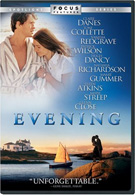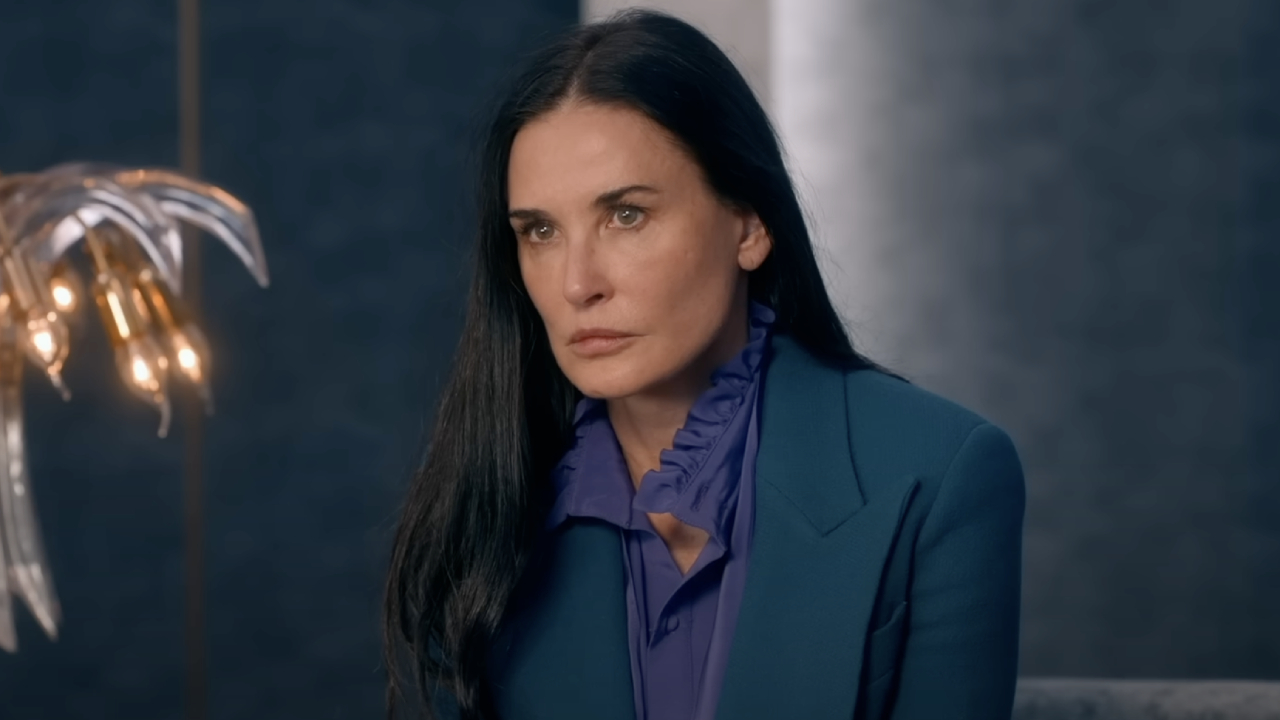"There’s no such thing as a mistake." Well, if that’s true, I would like to hear the producers of Evening explain why its characters are dancing to Michael Buble’s version of “I’ve Got the World on a String.” It’s a great song, as we all know, and Buble does an excellent cover of the tune made classic by Frank Sinatra. However, when part of the movie is set in the 1950s, don’t you think it would help if the music matched the time period? Buble is a great crooner, and he has that 1950s Rat Pack sound and look, but he’s not Sinatra. Trust me, this one of many mistakes in Evening that cannot be corrected or ignored. While on her death-bed, Ann Grant Lord (Vanessa Redgrave) reflects, predominantly through dreams, about what she considers the most beautiful weekend of her life. It is the weekend where she, as a young woman, portrayed by Claire Danes, attends the wedding of her best friend, Lila (Mamie Gummer). During her life-altering weekend, she spends time with Harris (Patrick Wilson), the son of a former employee of Lila and Buddy’s parents (Brian Bostwich and Glenn Close). Ann and Harris grew up as outsiders in a world of wealth and the finer things, and they connect instantly. She falls in love with his charm, good looks, and the fact that he knows what it’s like to feel like you don’t belong.
Ann’s daughters, Constance (Natasha Richardson) and Nina (Toni Collette), never knew about the story of their mother’s true love. But when the story comes out, it helps everyone come to their own understanding of life, the power of the past, and the bonds between mothers and daughters.
Evening proves that not every Susan Minot novel is destined for the big screen, no matter how touching the story can be, or how well-acted it is on screen. It tries to be The Hours, another movie based on a Minot novel, but it only accomplishes that with another ensemble cast of exceptional actresses, and the fact that the movie is hours long (it’s only two hours long, but trust me, it feels longer).
Director Lajos Koltai mindlessly takes you between Ann’s dream sequences or hallucinations and her children’s reality like it is all connected. One minute you watch a young Ann sing at her friends wedding, and the next minute Constance and Nina argue about whose life is more fulfilled. It is not a hard story to follow, but it lacks balance and emotion. It is a sad story that lacks emotion. There will be no tears, largely because you will be smiling and jumping for joy that the movie is finally over.
When Ann reflects on the weekend of her friends wedding, Evening does a decent job of transporting you back the 1950s through the use of cars, old-fashioned ideals, and clothing. Lila’s brother Buddy (Hugh Dancy), however, seems more like one of today’s troubled and spoiled teenagers – drinking too much, always up for having a good time, but never wanting to grow up or take control of his life. While there are times he fits the era, there are other times he just seems like one of the kids from Superbad, only without all the jokes about male genitalia.
This movie, however, is about the man Ann calls her one true love and mistake, Harris. Lila fell in love with him when she was just 15-years-old, and she continues to love him, even on her wedding day. Buddy even develops a crush on Harris (not in that way). “Everybody loves Harris,” several characters proclaim. Well, I don’t. I kind of hate him. I think he’s a boring love interest that takes the movie no where. He’s the focus of a movie, but what’s there to love about him? He’s a doctor, he’s boring and his hair looks like there’s enough oil in it to burn down the Amazon Rain Forest. He even admits during the movie that he’s “no fun.” Sure, he’s a good looking guy, but why “everyone” loves him, I have no idea. I guess these women are just easy, because Harris is a bore.
Despite the dull and predictable story, Evening has some quality performances. Danes does an excellent job of bringing a care-free, young singer to life as Ann reflects on a time when she was truly happy, even while making mistakes. Collette and Richardson also do a stellar job showing a family that not only is having problems coping with their mothers’ illness and mistakes, but their own lives and mistakes. Collette, especially, does an outstanding job of displaying true confliction as her character discovers she is two months pregnant, and with a man she is not sure can provide her with a life of happiness.
The best performance, however, belongs to Academy Award winner Meryl Streep. She is on screen for 10 minutes or so, and plays Lila in the present day. If you see a scary resemblance between Streep and the younger Lila (Gummer), there is good reason: they are mother and daughter. Streep’s sensitive performance brings all of the stories together and gives a message that “we can’t know” everything about a loved one and their accumulation of choices in life – there has to be some mistakes that are never discussed and some mystery to life. Well, if that’s the case, why did I just spend an Evening with all of these women? I really hate Harris! It’s his fault. This Evening did not need to be any longer, but the DVD does include three special features. They aren’t as long as the movie but are just as dull and predictable. The bonus materials will not take more than 30 minutes of your time, but they, along with the menu music, will be almost as effective as taking NyQuil before you go to sleep.
The first feature is a series of scenes that did not make it to the movie, which is surprising considering the filmmakers did a good job of putting at least 30 minutes of scenes just like these in the movie. Each scene is labeled with a number, as well as a title that tells you what is going on in the scene, and it’s running time. For instance, one scene is labeled Scene 44, “Ann leaves Ralph,” and it is one minute and 13 seconds long. There are only five minutes worth of deleted scenes and if you watch the movie you can pretty much determine where they could be placed. The feature might have been better if there was some director commentary, but I doubt it.
“One Weekend by the Sea: Remembering Evening,” is a typical making of feature that includes clips from the film, behind the scene footage, and interviews with Koltai, Redgrave, Danes, Gummer, Wilson, Richardson, Dancy, producer Jeffrey Sharp, screenwriter Michael Cunningham, and just about everyone else involved with the movie. They talk about their characters, how the movie came to fruition, and what the experience of making Evening meant to them.
The final feature is called “Adapting Evening,” which is about the process of transforming Minot’s novel into a film. Minot, who is interviewed, talks about how her book was once a short story called “Report from Nurse Brown.” She said the story evolved from a nurse taking notes of a dying woman’s life and the people that come to visit her, to what was actually going through the dying woman’s mind. I think I see where the confusion and mindlessness I found in the movie came from. When an author/screenwriter starts with one thought and switches to something completely different because it sounds more interesting, it is bound to cause confusion and possibly disconnection from the rest of the story because now characters are being looked at in a new light. The truth is, Evening should have remained a short story because this is one long Evening of my life I really wish I could get back.
‘You Could Not Pay Me To Be 21:’ Demi Moore Opened Up About Aging In Hollywood And It Being ‘A Tremendous Gift’
I Thought Elsbeth's Bloody Judge Crawford Twist Had To Be A Fake Out, But Now I Have Questions For The Season 2 Finale
A24’s The Legend Of Ochi Hired A YouTuber Making Bird Sounds In His Basement To Work On The Movie, And I'm Wowed By The Whole Process











